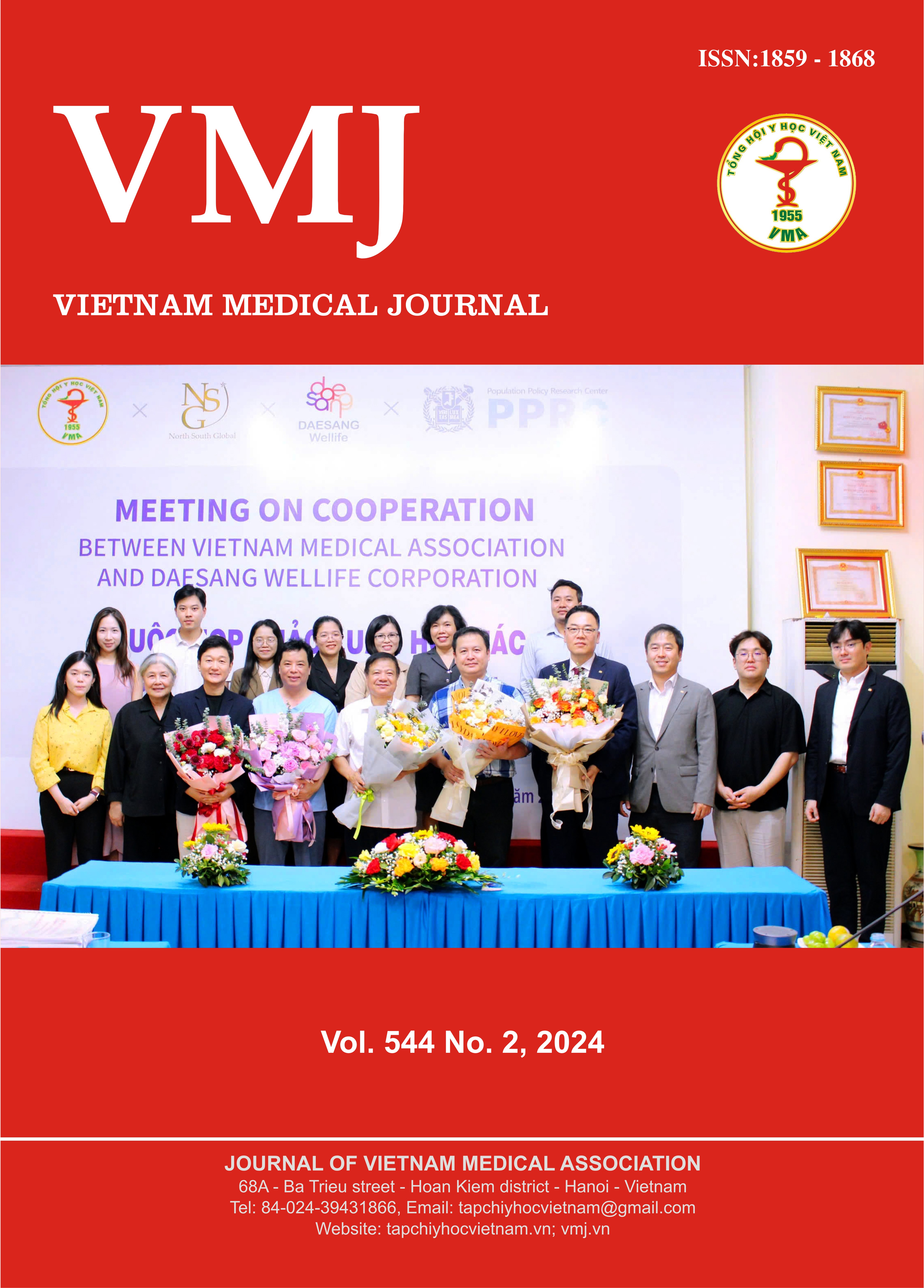RELIABILITY AND VALIDITY OF THE APGAR FAMILY SCALE IN FAMILY MEDICINE CLINICS IN HO CHI MINH CITY, VIETNAM
Main Article Content
Abstract
Introduction: This study examined the APGAR family scale’s reliability and validity in family medicine clinics in Ho Chi Minh City, Vietnam. Methods: The scale was independently translated by a family physician and an English instructor, followed by consensus and pilot testing with 51 participants for clarity and understanding. A cross-sectional study involving 289 participants at family medicine clinics in Ho Chi Minh City was then conducted. Reliability was assessed using Cronbach's Alpha (alpha). Exploratory Factor Analysis (EFA) with Principal Component Analysis (PCA) explored unidimensionality, and Confirmatory Factor Analysis (CFA) tested the one-factor model. Results: The APGAR family scale demonstrated good internal reliability (alpha = 0.81). Item-total correlations for each item ranged from 0.56 to 0.71, with Cronbach’s Alpha coefficients if the item was deleted ranging from 0.77 to 0.81. EFA revealed a single factor structure (Eigenvalue = 2.96), accounting for 49% of the total variance, with factor loadings between 0.62 and 0.80. CFA results showed good fit indices: Comparative Fit Index (0.95), Tucker-Lewis Index (0.91), though Root Mean Square Error of Approximation (RMSEA) was 0.13 with a p-value for the hypothesis test (H₀: RMSEA ≥ 0.080) being ≥ 0.05. Conclusions: The APGAR family scale is a reliable and valid measure for assessing family functioning in this context, though the RMSEA value suggests room for model improvement.
Article Details
Keywords
family functioning, APGAR, family medicine, Vietnam
References
2. Smilkstein G. The family APGAR: a proposal for a family function test and its use by physicians. J Fam Pract. 1978;6(6):1231-9.
3. Smilkstein G, Ashworth C, Montano D. Validity and reliability of the family APGAR as a test of family function. J Fam Pract. 1982;15(2):303-11.
4. Serrano L, Vela E, Martin L. Analysis of the Functioning of Families of Children with Autism Spectrum Disorder: A Psychometric Study of the Family APGAR Scale. Int J Environ Res Public Health. 2023;20(23).
5. Karimi Z, Taheri-Kharameh Z, Sharififard F. Cultural Adaption and Psychometric Analysis of Family APGAR Scale in Iranian Older People. Korean J Fam Med. 2022;43(2):141-6.
6. Bolarinwa OA. Principles and methods of validity and reliability testing of questionnaires used in social and health science researches. Niger Postgrad Med J. 2015;22(4):195-201.
7. Drost E. Validity and Reliability in Social Science Research. Education Research and Perspectives. 2011;38:105-24.
8. Rosseel Y. lavaan: An R Package for Structural Equation Modeling. Journal of Statistical Software. 2012;48(2):1 - 36.
9. Campo-Arias A, Caballero-Dominguez CC. Confirmatory factor analysis of the family APGAR questionnaire. Rev Colomb Psiquiatr (Engl Ed). 2021;50(4):234-7.
10. Whitehead L, Jacob E, Towell A, Abu-Qamar M, Cole-Heath A. The role of the family in supporting the self-management of chronic conditions: A qualitative systematic review. J Clin Nurs. 2018;27(1-2):22-30.
11. Ayisi-Boateng NK, Enimil A, Essuman A, Lawson H, Mohammed A, Aninng DO, et al. Family APGAR and treatment outcomes among HIV patients at two ART Centres in Kumasi, Ghana. Ghana Med J. 2022;56(3):160-8.
12. Huang Y, Liu Y, Wang Y, Liu D. Family function fully mediates the relationship between social support and perinatal depression in rural Southwest China. BMC Psychiatry. 2021;21(1):151.
13. Wang MW, Huang YY. Evaluating family function in caring for a geriatric group: Family APGAR applied for older adults by home care nurses. Geriatr Gerontol Int. 2016;16(6):716-21.
14. Botero-Carvajal A, Jimenez Urrego AM, Gutierrez-Posso AG, Calero-Florez M, Hernandez-Carrillo M. Factors associated with family function in school children: Case-control study. Heliyon. 2023;9(3):e14595.


